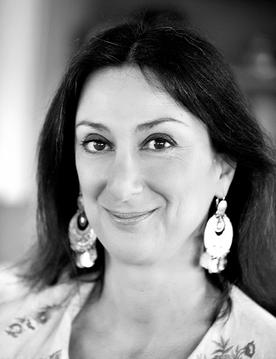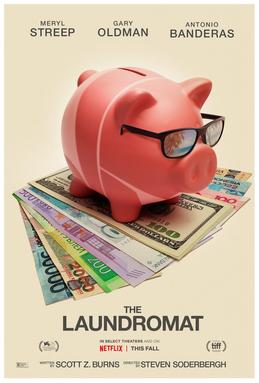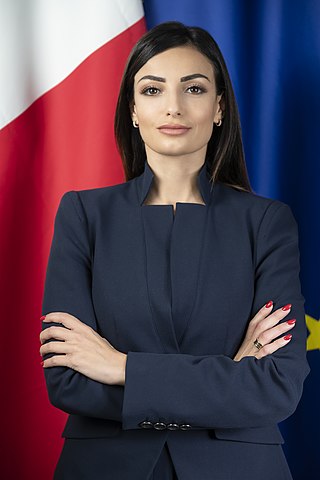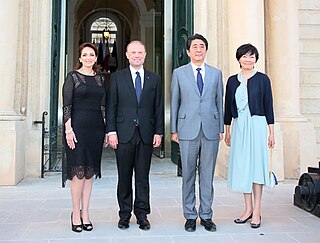Related Research Articles

Joseph Muscat is a Maltese politician who served as the 13th prime minister of Malta from 2013 to 2020 and leader of the Labour Party from 2008 to 2020.

Bidnija is a rural hamlet between Mosta, St. Paul's Bay and Mġarr. It is located in the northern region of Malta and is home to roughly 308 people as of 2008, the second least populated habitable zone on the Maltese islands after Mdina. It is located between two main valleys then extends into other small valleys surrounding the area. It is largely a rural village surrounded by fields mainly belong to the inhabitants, although over the years other Maltese and foreigners have settled in the area generally for its countryside views.

Christian Cardona is a Maltese former politician and lawyer. He was a Member of Parliament for the Maltese Labour Party and was elected Deputy Leader for Party Affairs in 2016. He served as Malta's Minister for the Economy, Investment and Small Business between 2013 and 2020.

Jason Azzopardi is a Maltese politician and lawyer. He graduated as Doctor of Laws with a master's degree in financial services from the University of Malta in 1996 and that year he started practicing as a private criminal lawyer in the courts of Malta.

The Panama Papers are 11.5 million leaked documents that were published beginning on April 3, 2016. The papers detail financial and attorney–client information for more than 214,488 offshore entities. The documents, some dating back to the 1970s, were created by, and taken from, former Panamanian offshore law firm and corporate service provider Mossack Fonseca, and compiled with similar leaks into a searchable database.
John Doe is the pseudonym used by the whistleblower in the 2016 Panama Papers leak, who turned over 11.5 million documents from the law firm Mossack Fonseca to the newspaper Süddeutsche Zeitung. On May 5, 2016, Doe published a statement titled The Revolution Will Be Digitized; Doe explained they made the files public to underline growing income inequality and financial corruption globally. The whistleblower has offered to help prosecutors build their cases, on the condition of legal protection.
Keith Schembri is Maltese businessman and political strategist who served as chief of staff to Prime Minister Joseph Muscat from 11 March 2013 to 26 November 2019. Schembri resigned in relation to the murder investigation of Daphne Caruana Galizia and in course of the political crises in Malta. The crisis also led to unprecedented protests in Malta, which called for Schembri's resignation.
Bastian Obermayer is a Pulitzer Prize-winning German investigative journalist with the Munich-based newspaper Süddeutsche Zeitung (SZ) and the reporter who received the Panama Papers from an anonymous source as well as later on the Paradise Papers, together with his colleague Frederik Obermaier. Obermayer is also author of several books, among them the best selling account of the Panama Papers: The Panama Papers: Breaking the Story of How the Rich and Powerful Hide Their Money, co-authored by his colleague Frederik Obermaier.

Frederik Obermaier is a German investigative journalist for the Munich-based newspaper, Süddeutsche Zeitung, and author. Together with his colleague Bastian Obermayer in 2016 he initiated and coordinated the Panama Papers-revelations.

Daphne Anne Caruana Galizia was a Maltese writer, journalist, blogger and anti-corruption activist, who reported on political events in Malta and was known internationally for her investigation of the Panama Papers, and subsequent assassination by car bomb. In particular, she focused on investigative journalism, reporting on government corruption, nepotism, patronage, and allegations of money laundering, links between Malta's online gambling industry and organized crime, Malta's citizenship-by-investment scheme, and payments from the government of Azerbaijan. Caruana Galizia's national and international reputation was built on her regular reporting of misconduct by Maltese politicians and politically exposed persons.

The Laundromat is a 2019 American comedy-drama film directed by Steven Soderbergh with a screenplay by Scott Z. Burns. It is based on the book Secrecy World about the Panama Papers scandal by author Jake Bernstein. The film stars Meryl Streep, Gary Oldman, Antonio Banderas, Robert Patrick, Jeffrey Wright, David Schwimmer, Matthias Schoenaerts, James Cromwell and Sharon Stone.
Lawrence Cutajar is a Maltese policeman, and served as commissioner of the Malta Police Force from 2016 to 2020.

Rosianne Cutajar is a Maltese politician who was formerly a member of the Labour Party. She is a member of the Parliament of Malta representing the Sixth District electoral division. Cutajar was Parliamentary Secretary for Civil Rights and Reforms within the Ministry for Justice, Equality and Governance. As a junior minister within Prime Minister Robert Abela’s government, she was responsible for Malta’s equality and civil rights policy and its implementation, together with the country’s legislative reforms across various sectors of government. Cutajar resigned from her position as parliamentary secretary in February 2021 after calls for her resignation due to links with murder suspect Yorgen Fenech.
Yorgen Fenech is a Maltese businessman whose main interests are casinos and hotels in Malta. He was head of the Tumas Group and director of the Maltese-Azerbaijan-German company ElectroGas Malta.

A political and institutional crisis within the Republic of Malta followed the uncovering of alleged links between government officials and the 2017 assassination of investigative journalist Daphne Caruana Galizia. The Prime Minister's Chief of Staff Keith Schembri and Minister for Tourism Konrad Mizzi resigned following the arrest of businessman Yorgen Fenech in connection with the murder.

The 2019–2020 Maltese protests started in Valletta and other urban centres of Malta on 20 November 2019, mainly calling for resignations after alleged political links to the assassination of journalist and blogger Daphne Caruana Galizia surfaced following the arrest of businessman Yorgen Fenech. The protesters also targeted government corruption and the lack of action on money laundering. The protests consisted of demonstrations, marches, sit-ins, and civil disobedience and have been unprecedented in Malta's political history since its independence from the United Kingdom.

Michelle Muscat is the wife of the former Prime Minister of Malta, Joseph Muscat.
Forbidden Stories is a non-profit organization with the mission "to continue and publish the work of other journalists facing threats, prison, or murder." To achieve this, it allows journalists to send their work to Forbidden Stories, so other journalists have access to the material in case the original investigator is not able to follow it anymore. It partners with organizations such as Reporters Without Borders and Freedom of the Press Foundation.
Justice for Journalists Foundation is a non-governmental organization whose mission is to fight impunity for attacks against media. Based in London, its main goal is to protect journalists from the abuse of their right to freedom of expression, increase public awareness about attacks on media workers and provide journalists with the knowledge and skills necessary to protect themselves from professional risks.
Mark Camilleri M.Q.R is a Maltese historian, writer, blogger, and publisher. Camilleri served as chairman of the National Book Council from 2013 to 2021. Following this, he became an outspoken critic of the ruling Labour Party and of prime ministers Joseph Muscat and Robert Abela.
References
- 1 2 "The Daphne Project". Organized Crime and Corruption Reporting Project (OCCRP). Retrieved January 31, 2019.
- 1 2 3 4 Allsop, Jon (April 19, 2018). "Breathing new life into a murdered journalist's work". Columbia Journalism Review. Retrieved January 31, 2019.
- 1 2 Richard, Laurent (2018-04-16). "A warning to the corrupt: if you kill a journalist, another will take their place". The Guardian. ISSN 0261-3077 . Retrieved January 31, 2019.
- 1 2 Kulish, Nicholas (April 17, 2018). "In Journalist's Murder, a Test for Malta, and the European Union". The New York Times. Bidnija, Malta. ISSN 0362-4331 . Retrieved January 31, 2019.
- 1 2 Grey, Stephen (April 17, 2018). Woods, Richard (ed.). "The silencing of Daphne". Reuters. Malta. Retrieved January 31, 2019. Photography by Darrin Zammit Lupi; Development by Ashlyn Still, Matthew Weber; Data by Crina Boros; Video by Matthew Larotonda, Adam Wiesen; Visual editor by Sarah Slobin; Additional reporting by Francesco Guarascio; Additional photography by Matthew Larotonda
- 1 2 "Tumas Group CEO named as owner of 17 Black". The Malta Independent . November 9, 2018. Retrieved February 2, 2019.
- 1 2 Grey, Stephen; Arnold, Tom (November 9, 2018). "Mystery Company Named by Murdered Maltese Journalist Linked to Power Station Developer". OCCRP. Valletta/Dubai . Retrieved February 2, 2019.
- ↑ Greenberg, Andy (April 4, 2016). "How Reporters Pulled Off the Panama Papers, the Biggest Leak in Whistleblower History". WIRED.com. Retrieved January 31, 2019.
Obermayer received the Panama Papers from an anonymous source: "A Suddeutsche Zeitung reporter named Bastian Obermayer says that the source contacted him via encrypted chat, offering some sort of data intended "to make these crimes public." But the source warned that his or her "life is in danger," was only willing to communicate via encrypted channels, and refused to meet in person."
- ↑ "A new project will keep stories alive when journalists are killed". Columbia Journalism Review. October 24, 2017. Retrieved 2019-02-01.
- ↑ Rundfunk, Carolin Hasenauer, Bayerischer (April 20, 2018). "Forbidden Stories: Auch Daphne Caruana Galizias Recherchen gehen weiter". BR.de (in German). Retrieved 2018-04-29.
{{cite web}}: CS1 maint: multiple names: authors list (link) - ↑ "About Us • Forbidden Stories". Forbidden Stories. Retrieved 2018-04-29.
- 1 2 3 Shoard, Catherine (2019-09-01). "Meryl Streep on the Panama Papers: 'People died to get the word out'". The Guardian. ISSN 0261-3077 . Retrieved 2019-09-02.